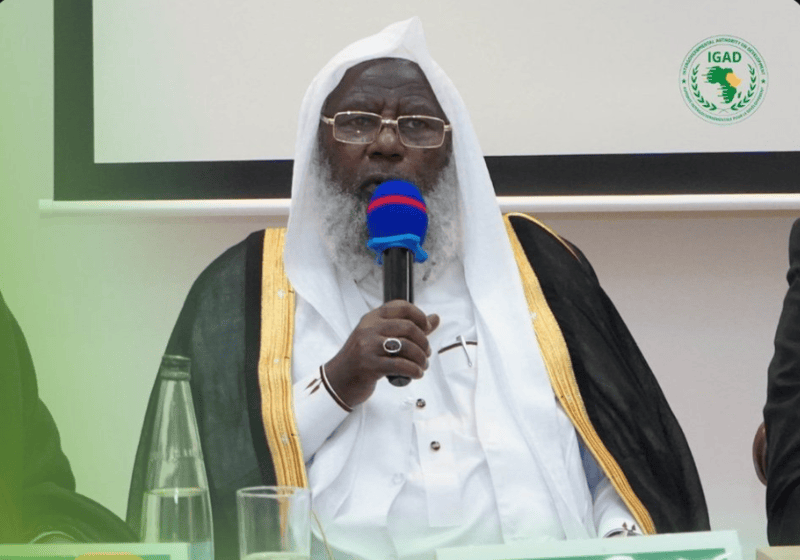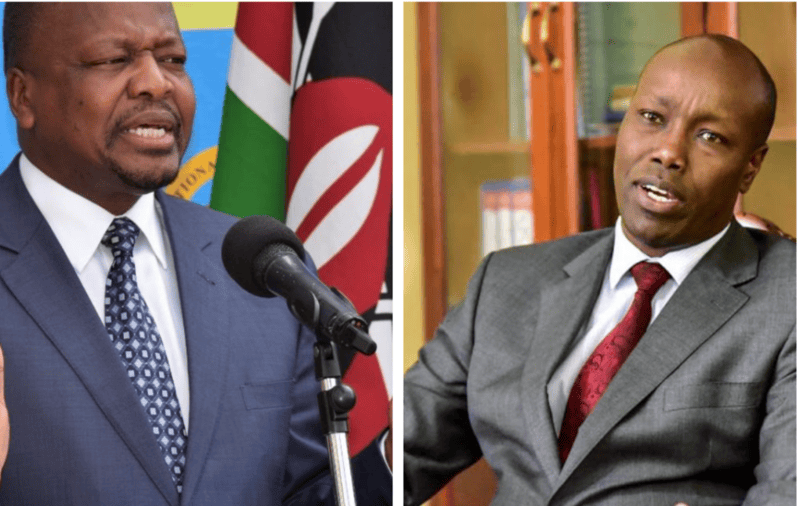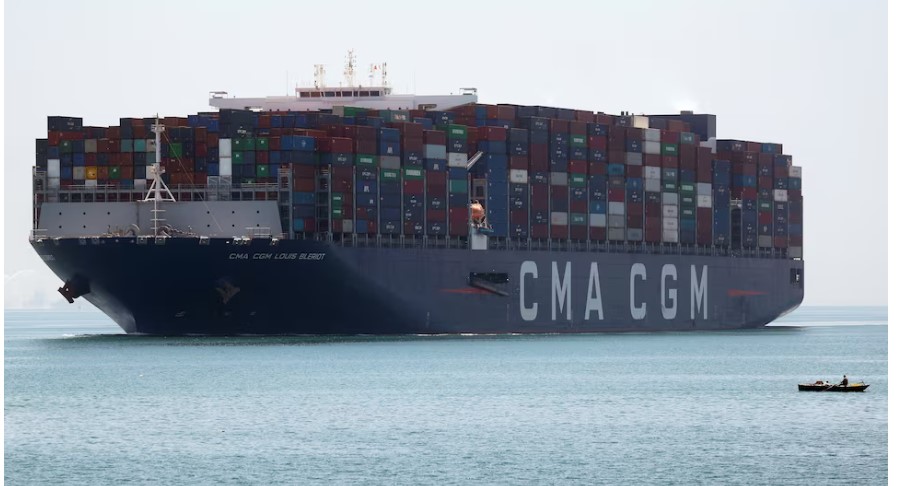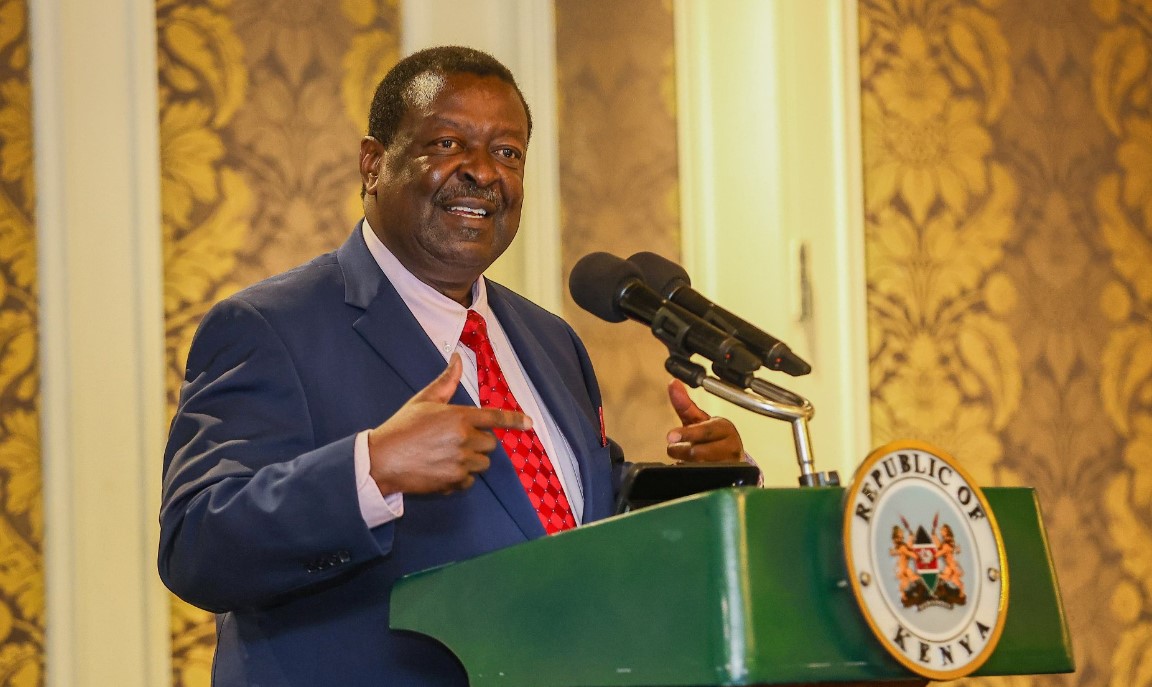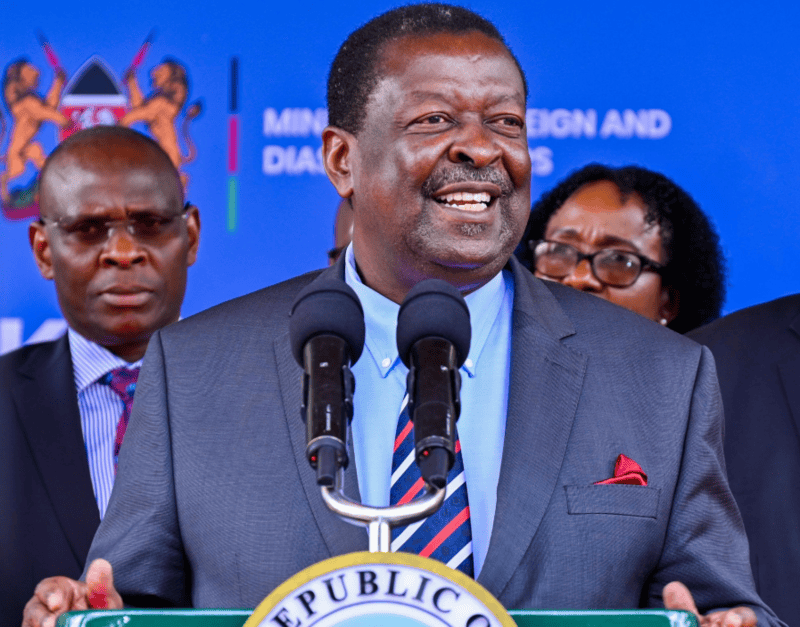Kenya calls for contact group to address landlocked countries' maritime issues
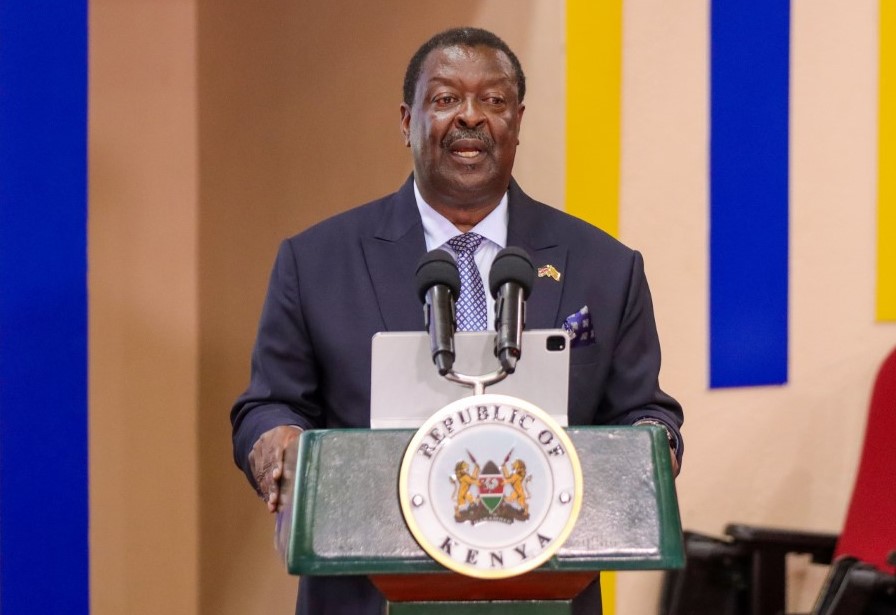
By Amina Wako |
Foreign minister Musalia Mudavadi's remarks follow tensions sparked by a sea access deal between landlocked Ethiopia and Somaliland, a breakaway region of Somalia.
It is becoming increasingly important to address the geo-strategic constraints that landlocked countries face, Kenya's Foreign and Diaspora Cabinet Secretary, Musalia Mudavadi, has said, noting that this is becoming a major driver of conflict in Africa.
During a public lecture at the United States International University-Africa in Nairobi on Friday evening, the CS advocated for the establishment of a contact group to discuss, negotiate and assess the concerns of these often-overlooked nations, particularly where maritime access issues are concerned.
Keep reading
"Kenya notes the geo-strategic constraints that landlocked countries face are increasingly becoming major drivers of conflicts on the continent. There are 16 landlocked countries in Africa, with a combined estimated population of 378 million people," Mudavadi noted.
"Kenya advocates for the establishment of a contact group or a working group to discuss, negotiate, and assess the concerns of the often-forgotten landlocked countries and stick to contentious issues or conflicts relating to maritime access."
"Kenya's foreign policy outlook is both an opportunity and a challenge shaped by global geopolitics," ~ Dr. Musalia Mudavadi, Prime Cabinet Secretary and Cabinet Secretary for Foreign and Diaspora Affairs
— USIU-Africa (@ExperienceUSIU) March 22, 2024
Here are the details: https://t.co/EjbPIJoDk2
📹 OPCS Press Service… pic.twitter.com/Z5rVbpKatb
Mudavadi's remarks follow tensions sparked in the region earlier this year when Ethiopia, a landlocked country in the Horn of Africa, signed a preliminary sea access agreement with Somaliland, a breakaway region of Somalia.
Recognising the complexities of global crises affecting Africa and the Eastern Africa region, Mudavadi emphasised Kenya's understanding of the challenges faced by landlocked countries.
In discussing the Red Sea waterway crisis, the Kenyan foreign minister affirmed the economic and security implications for Eastern African states. He pointed out that while the crisis affects all nations in the region, the impact is compounded for landlocked states reliant on coastal countries, as they face increased costs of goods, shipping, and freight insurance.
"What is the plight of landlocked countries in Africa given the complex global crises impacting our continent and the Eastern Africa region? 'With the Red Sea waterway crisis, many Eastern African states have been affected economically and security-wise," he said.
"When the cost of shipping, freight insurance, and goods goes up due to the Red Sea crisis, the impact is possibly double for the landlocked states that rely on the coastal countries."
Speaking during a Public Lecture on "Kenya's Grand Strategy in a Changing World," Prime Cabinet Secretary and Cabinet Secretary for Foreign and Diaspora Affairs, Dr. Musalia Mudavadi outlined the multifaceted nature of Kenya's grand strategy, emphasizing its holistic approach… pic.twitter.com/LdkTVX1RSI
— USIU-Africa (@ExperienceUSIU) March 22, 2024
So far, details of the preliminary accord between Ethiopia and Somaliland are opaque, with officials offering different accounts of its contents.
Hargeisa says they won't grant Ethiopia sea access if they don't recognise Somaliland as a sovereign state.
With some 120 million people, Ethiopia is the world's most populous landlocked nation, having lost its coastline when Eritrea seceded in 1993.
Addis Ababa wants to restore sea access through Somaliland's Gulf of Aden coastline.
Kenya aims to alleviate tensions in the Horn while urging Addis Ababa to support the continuation of the LAPSSET project.
Reader comments
Follow Us and Stay Connected!
We'd love for you to join our community and stay updated with our latest stories and updates. Follow us on our social media channels and be part of the conversation!
Let's stay connected and keep the dialogue going!




